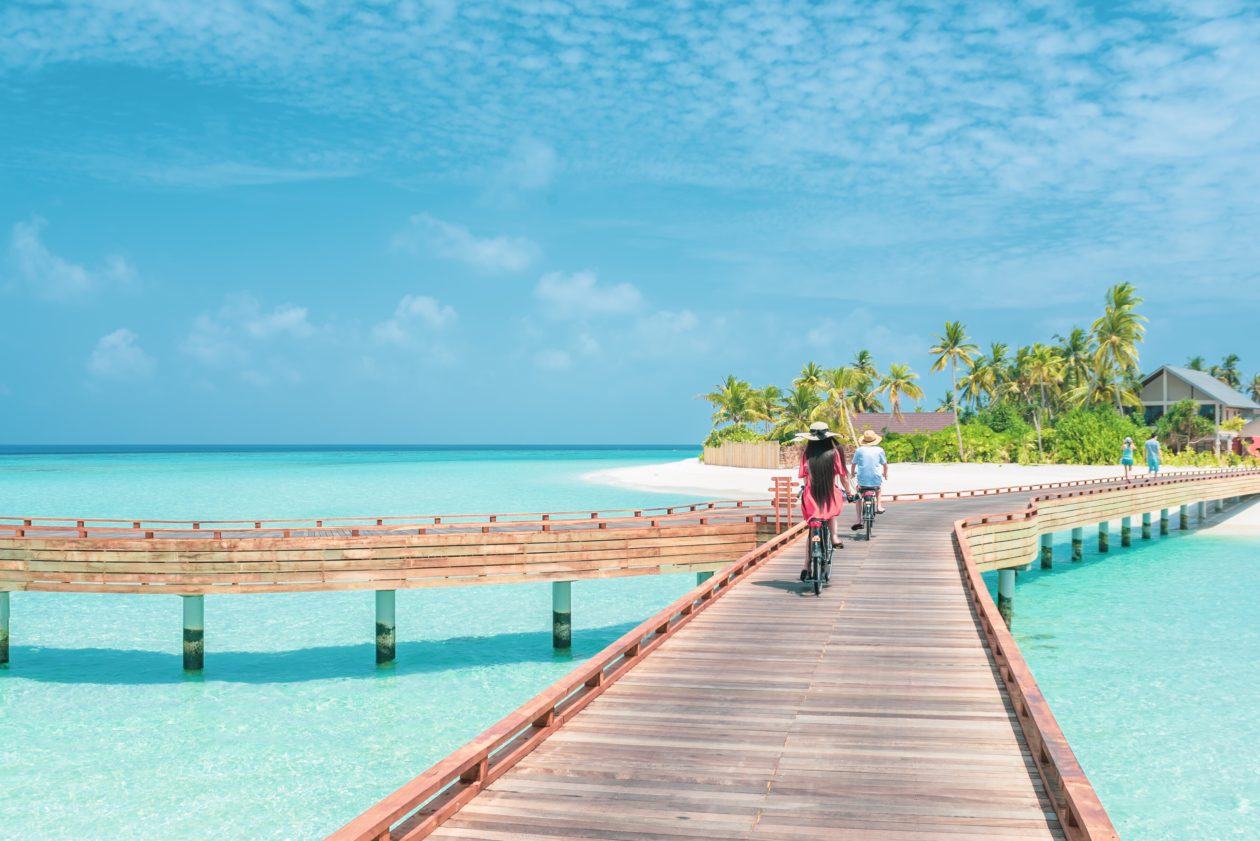The Bahamas, an archipelago made up of 700 small islands of tropical paradise, were the first place where Christopher Columbus set foot in 1492 on his way to discover what would be called “the New World.” Once an unruly chain of islands and the hunting ground of famous pirate Blackbeard, its pink and white sand beaches have been a favorite tourist spot for centuries. Celebrities like Shakira, Eddie Murphy and Johnny Depp, who starred in “The Pirates of the Caribbean” movie series partly filmed in the region, even own islands in the Bahamas. Others like Oprah Winfrey and Michael Jordan own beachside villas there.
In the 20th century, the Bahamas were notorious for drug trafficking when Colombian drug lord Pablo Escobar operated there. It also acted as a money laundering hub, but the islands have since been removed from the global watchlist for money laundering activities. Now the Bahamas are emerging as a friendly environment for cryptocurrency businesses to set up camp.
Earlier this week, crypto exchange FTX announced it is moving its corporate headquarters to the Bahamas from Hong Kong. FTX CEO Sam Bankman-Fried said it will be the “first sort of real official headquarters” for the company.
The decision to move the headquarters came right after China announced a fresh crackdown on cryptocurrencies last week. But Bankman-Fried said the decision was made earlier and not motivated by the Chinese crackdown and its potential spillover effects in Hong Kong.
Bankman-Fried identified two key reasons that motivated the move to the Bahamas: a comprehensive cryptocurrency regulation and the absence of stringent quarantine rules allowing for easier traveling. “It’s important for me to be in a place where I can get in and out without weeks spent in hotels for meetings and conferences,” Bankman-Fried recently told Forkast.News.
Hong Kong has strict quarantine measures in place to prevent the spread of the deadly Covid-19 virus, even for those who are fully vaccinated. This means that business travelers need to spend days or weeks in quarantine, making it inconvenient to conduct in-person business meetings. But while the lack of quarantine mandates is a perk, it is the crypto regulation in the Bahamas that is drawing FTX in.
“Probably the most exciting piece of this has been the forward-looking stance taken by the Bahamian regulators, establishing one of the world’s first comprehensive regulatory regimes for cryptocurrency, which includes both spot and derivatives marketplaces,” Bankman-Fried said. FTX is a regulated entity in the Bahamas, registered under the Digital Assets and Registered Exchanges Act of 2020, he said.
FTX already has 15 employees in the Bahamas and is planning to hire more locals for key roles in the areas of finance, marketing, and software development. The employees work in a newly renovated single-floor office building with a setup resembling FTX’s other offices but is more spacious than the rest. Although it may not be a beachside villa, employees can see the sand and trees right outside — that’s as close to a beach feeling as they can get while working at the office.
The sea is crystal clear, and so is the crypto policy
The Bahamian islands are surrounded by clear deep blue and turquoise waters which, in addition to a rich sea life, make it a top destination for scuba diving and snorkeling. It seems the crypto regulations are just as clear.
“We’ve been looking for a place that we feel really comfortable establishing our headquarters at, and that has to be a place where we feel like there’s clarity from regulators,” Bankman-Fried said. “We’ve been really excited about the clarity that the Bahamian regulators have given. There are a number of jurisdictions that haven’t been giving that clarity, in fact, have been giving mixed or negative signals.”
Those jurisdictions sending mixed signals include Hong Kong and “frankly, in more than half of the jurisdictions in the world,” Bankman-Fried said. “If you look at many countries in the world right now, you will not see clear signalling from regulatory bodies there about what direction crypto policy is going to go in … You can sort of count on one hand the number of jurisdictions that have actually spelled out explicit policies for at least the majority of the crypto industry.”
Besides, regulations take years to be drafted and implemented. “In a lot of places you have some signs of regulatory regimes coming out, but that doesn’t mean that they have come out or will come out tomorrow or that it’s clear how they will apply to all products,” Bankman-Fried said.
In addition, Bankman-Fried says countries that do not have a crypto regulatory regime for derivatives are less likely to attract crypto companies. “One of the biggest things for us, like in every other sector, is that the majority of volume trades in derivatives in crypto. That’s what we see as the gold standard of a regulatory regime for crypto these days — having a regime for crypto futures. If you don’t have that, you don’t have a regime for more than two-thirds of the volume in the world. That makes it tough for there to be a real industry migration to a place,” he explained.
The Bahamas and Gibraltar are the only two countries to have regulation for cryptocurrency derivatives at present, Bankman-Fried said. So, since clear crypto regulations that are easy to comply with are rare, so are the choices for crypto businesses to set up their base. In the east, Bankman-Fried is “excited” about the crypto regulations coming in Singapore, a place where FTX hopes to play a big role in the future.
Small islands taking big strides in the crypto space
There’s another benefit of moving to the Bahamas — one that Bankman-Fried did not talk about. Like the Cayman Islands, located in the Caribbean region, the Bahamas is a tax haven — citizens do not have to pay taxes on income, capital gains or wealth and neither do the companies that operate there.
So FTX moving its base to the Bahamas means that it will save a significant chunk of its income that had to be paid as taxes in Hong Kong. And if any employee from Hong Kong were to move to the Bahamas for work, they would be saving taxes too since Hong Kong residents are exempted from income tax if they work in a foreign country for 12 months or more.
But the Bahamas’ rise in the crypto space comes as no surprise. In October last year, the Bahamas became the first country to launch a nationwide central bank digital currency, the Sand Dollar. Following its introduction, Bahamian businesses have not only started accepting Sand Dollar, but Mastercard also launched the world’s first CBDC-linked card in the country that allows users to instantly convert the digital currency to Bahamian dollars for payments.
There’s still a long way to go, Michael Armogan, an IT expert and tech enthusiast based in the Bahamas, told Forkast.News. The adoption rate is not high yet and there’s a limit to how much Sand Dollar you can buy, which keeps getting revised as more and more people use it.
Because the CBDC was launched in the family islands, the biggest and most populated islands in the Bahamas that do not have physical banks, the adoption of CBDC has helped the local population, Armogan said. Almost all local businesses in the islands have adopted the Sand Dollar.
But in Nassau, capital city of the Bahamas, almost a year after its launch, the adoption of the Sand Dollar is limited to bigger companies, Armogan said. “It [Sand Dollar] isn’t for just every mom and pop store, for example. You’re typically seeing more of the bigger companies taking it on right now.”
When it comes to cryptocurrencies, Bitcoin is the most popular, although well-known altcoins like Ether and Litecoin are also traded or mined. The country has Bitcoin ATMs concentrated in the North, Central and East Bahamian islands, tactfully located in movie theaters, cafes and other frequently visited spots. These ATMs allow instantaneous purchases of Bitcoins and are meant to ignite curiosity about the crypto space.
Saint Vincent and the Grenadines, located in the Caribbean, are also taking big strides in the crypto world. The Eastern Caribbean Central Bank rolled out its CBDC DCash in the country in August 2021. The country is also building what it claims to be the world’s first Bitcoin-enabled community.
In the second-largest island in the Grenadines archipelago called Bequia, a local property mogul is building One Bequia, a project consisting of 39 luxury villas. These properties as well as daily essentials in the surrounding stores can be purchased using Bitcoin.
Storm Gonsalves, the man behind the project, told Euro News that in the small islands of his country, “The adoption of cryptocurrency is far from a gimmick. It’s a response to the very real challenges faced by island communities increasingly cut off from mainstream banking facilities.” He said people living on islands find it increasingly difficult to conduct international transactions, limiting their earning potential from international trade and tourism activities.
There are already a few crypto companies registered in the Caribbean region. For instance, Binance, one of the world’s largest exchanges, is registered in the Cayman Islands, but it is in hot water with the region’s authorities, as in other parts of the world. ADD.xyz, a London-based decentralized finance aggregator, and crypto exchange C-Trade are registered in the British Virgin Islands, another Caribbean country, while crypto exchange PrimeBit is registered in Saint Vincent and the Grenadines.
These companies are flocking to the Caribbean for more than their tropical beaches and scenic beauty. They see strategic and regulatory advantages in these Caribbean nations, most of which do not have any direct taxation. While other countries continue to debate crypto regulation, some crypto businesses are finding it easier to incorporate or set up headquarters in these tropical islands that to many people seem like paradise.





